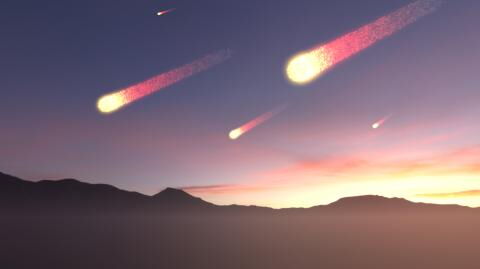The famous Perseid and Kappa-Cygnidsmeteor shower along with the sturgeon supermoon in August may be behind us, but that doesn't mean the year will be without other impressive astronomical events. While the month started with a bang with the alpha-Aurigids, another meteor shower is expected: the epsilon-Perseids
Discover our latest podcast
An unknown origin for the moment
But where does the swarm of shooting stars come from? One might think that, like the Perseids, it is linked to comet 109P/Swift-Tuttle, but it is not! According to Star Walk:
It is likely that the parent body of the Perseid epsilon is an unknown long-period comet.
The epsilon-Perseids sometimes spelt ε-Perseids, appear to originate from the star Epsilon Persei, hence the name of the meteor shower!
5 to 6 meteors per hour
The epsilon-Perseid meteor shower will be active from 5 to 21 September, with a peak on 9 September. For those who attended the Perseids (without the prefix 'Epsilon'), be warned that this event will be much more minor! Indeed, we can expect only 5 to 6 meteors per hour, as per Astrofiles.
It may not seem like much, but anyone who has ever seen a shooting star will tell you that the show is clearly worth the effort!
This article was translated from Gentside FR.
Read more:














